 Server
Colocation
Server
Colocation
 CDN
Network
CDN
Network
 Linux Cloud
Hosting
Linux Cloud
Hosting
 VMware Public
Cloud
VMware Public
Cloud
 Multi-Cloud
Hosting
Multi-Cloud
Hosting
 Cloud
Server Hosting
Cloud
Server Hosting
 Kubernetes
Kubernetes
 API Gateway
API Gateway

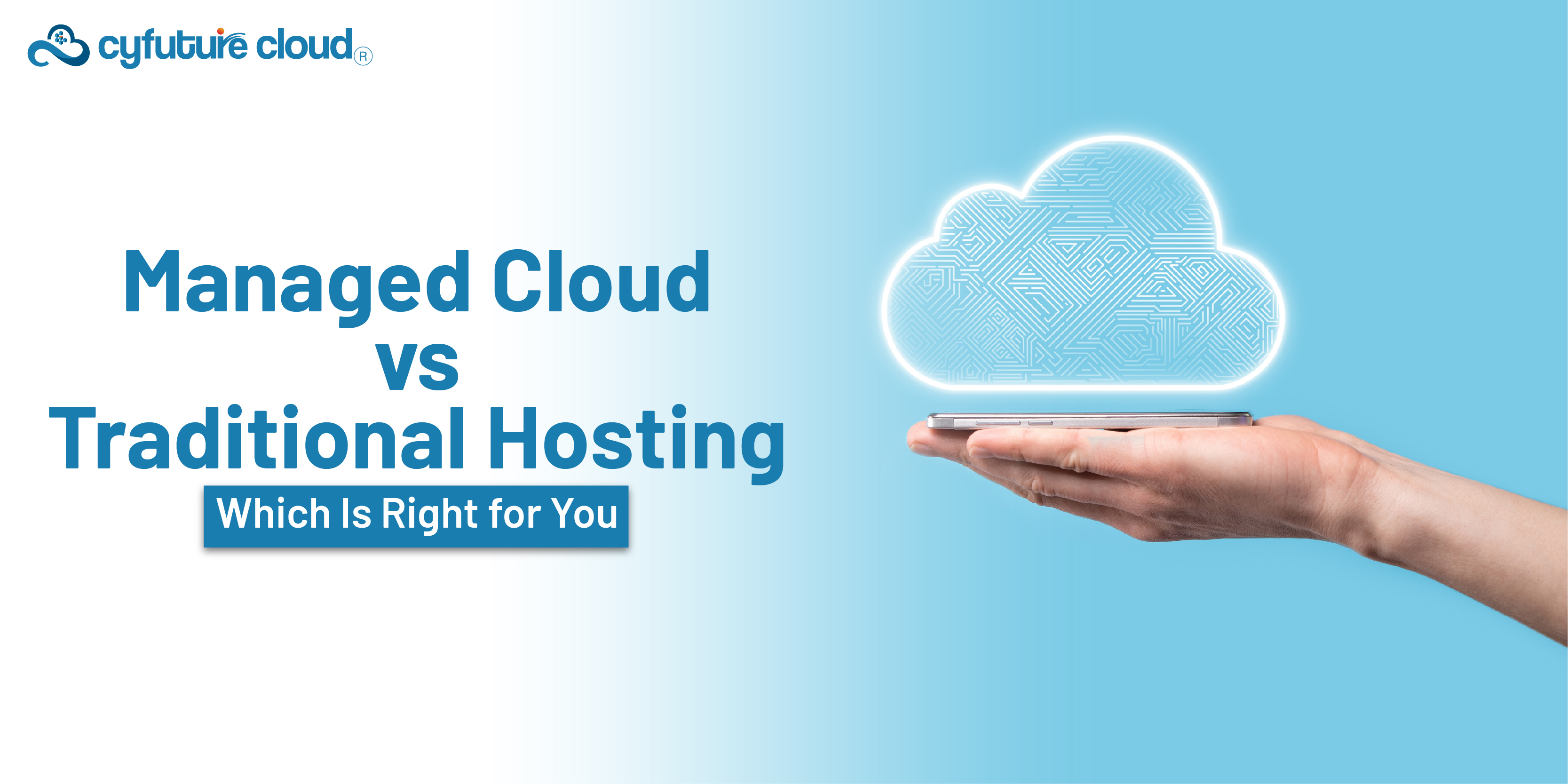
Selecting an appropriate hosting solution is a critical step that any business must undertake to create or grow an internet presence. The two options should be Managed Cloud Hosting and Traditional Hosting, as they are the most suitable for this approach. Each has its advantages and limitations, but they are used widely.
Read on and learn about these two options so you will have a clearer understanding of which one would be suited for your project.
Traditional hosting shared hosting, or dedicated hosting is where the hosting company rents out space on physical servers that exist in web host buildings. Here’s a closer look at the two main types of traditional hosting:
Shared Hosting: Hosted websites are many, as are sites that utilize the server and its services. There is a cost advantage since load is distributed across multiple sites, but there is a slight drawback of performance reduction, where one site overloads the other.
Dedicated Hosting: There is one server that is assigned to a single client.
The material has to support the following claims and conclusions: This offers more control and improved performance as compared to shared hosting but with more associated costs.
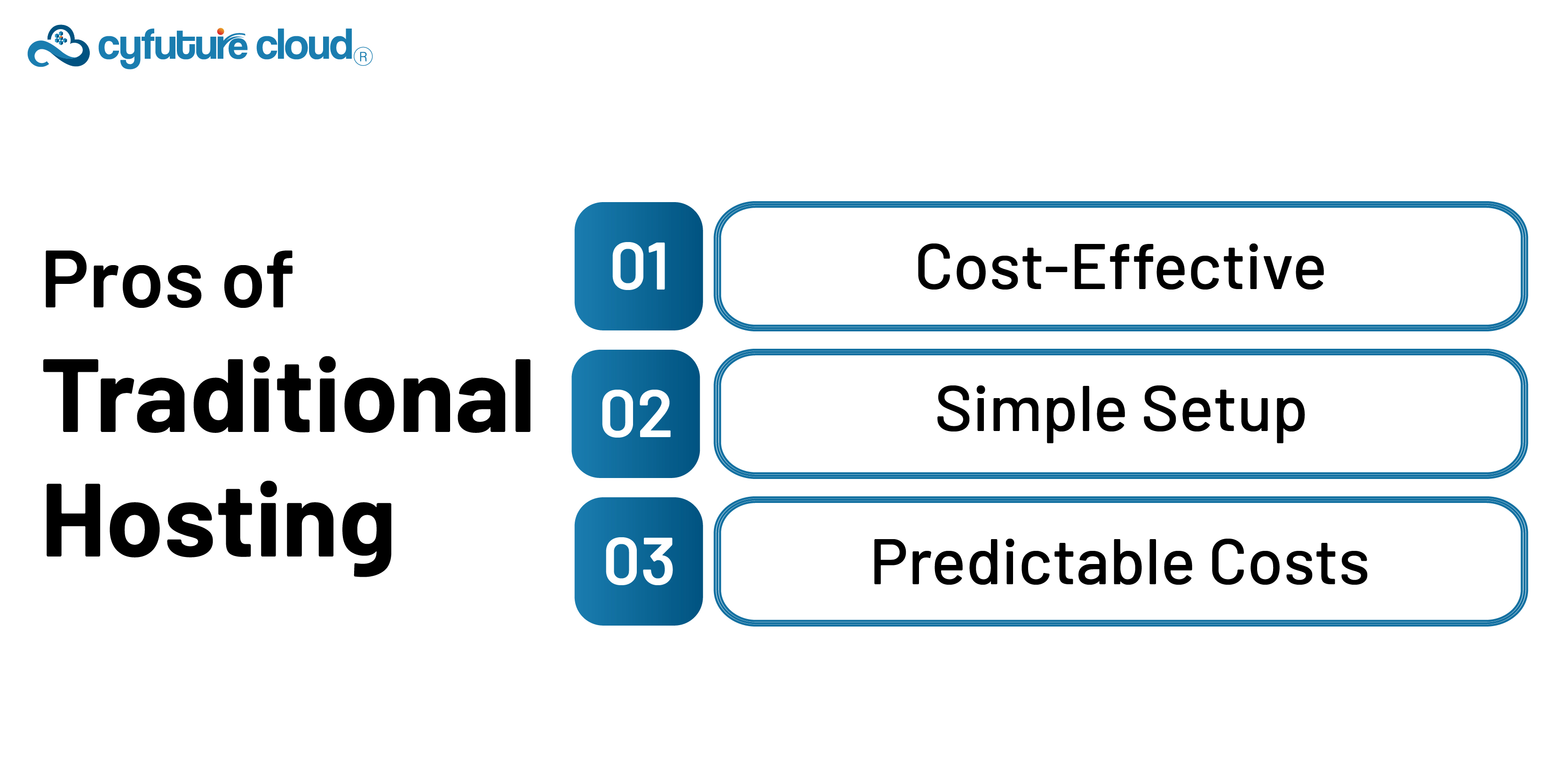
- Cost-Effective: Shared hosting is generally cheaper, making it ideal for small businesses or personal websites.
- Simple Setup: Often comes with easy-to-use control panels and one-click installs for popular software.
- Predictable Costs: Monthly or annual fees are fixed, making budgeting straightforward.
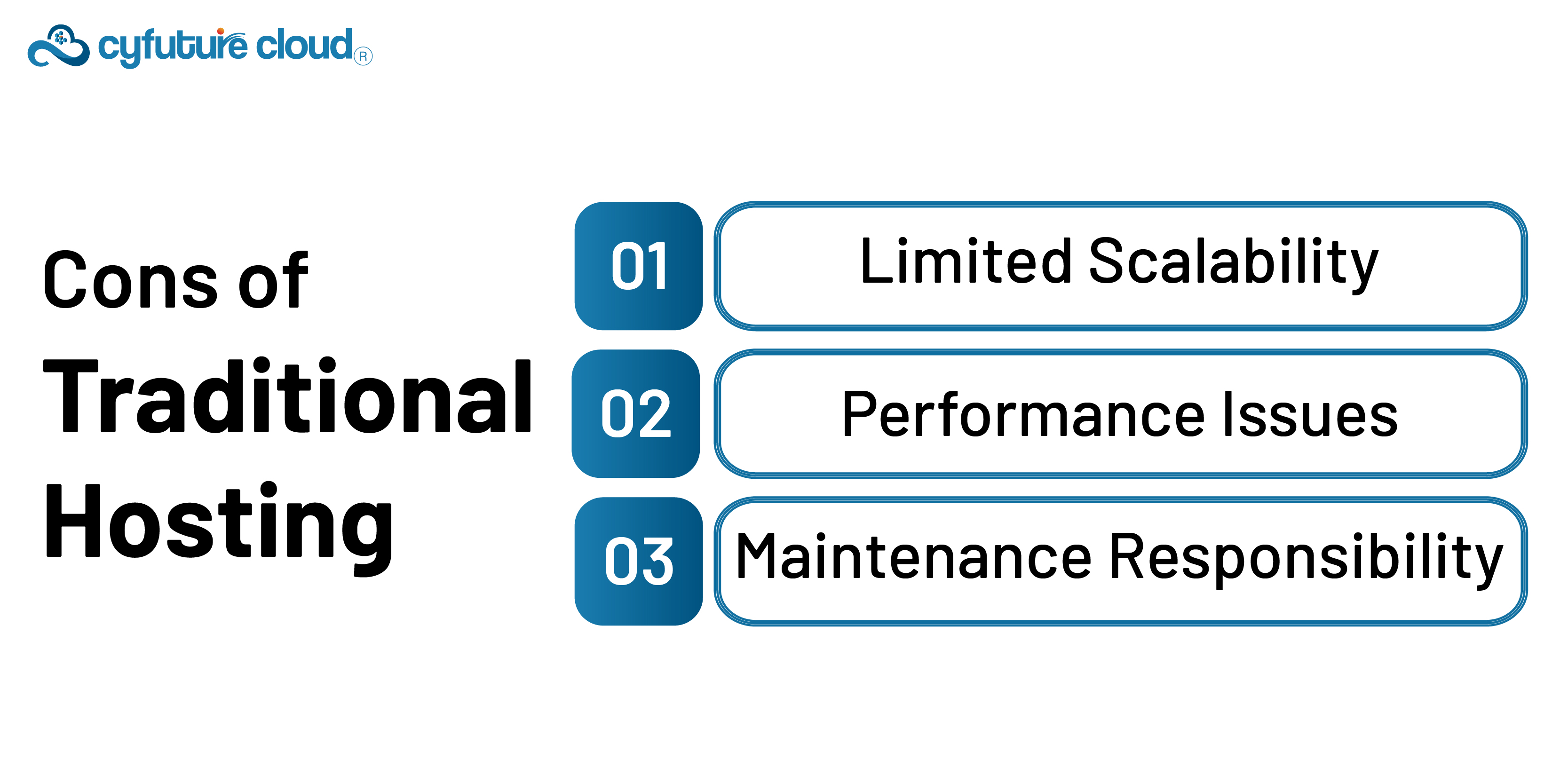
- Limited Scalability: Adding more resources can be difficult and often requires upgrading to a more expensive plan or server.
- Performance Issues: Shared hosting can suffer from slowdowns if other sites on the server experience high traffic.
- Maintenance Responsibility: Users must handle updates, security, and backups, particularly with dedicated hosting.
Managed cloud hosting uses virtual servers running on a cloud infrastructure. Providers manage the technical aspects, including setup, maintenance, and scaling. Resources are scalable and can be adjusted as needed.
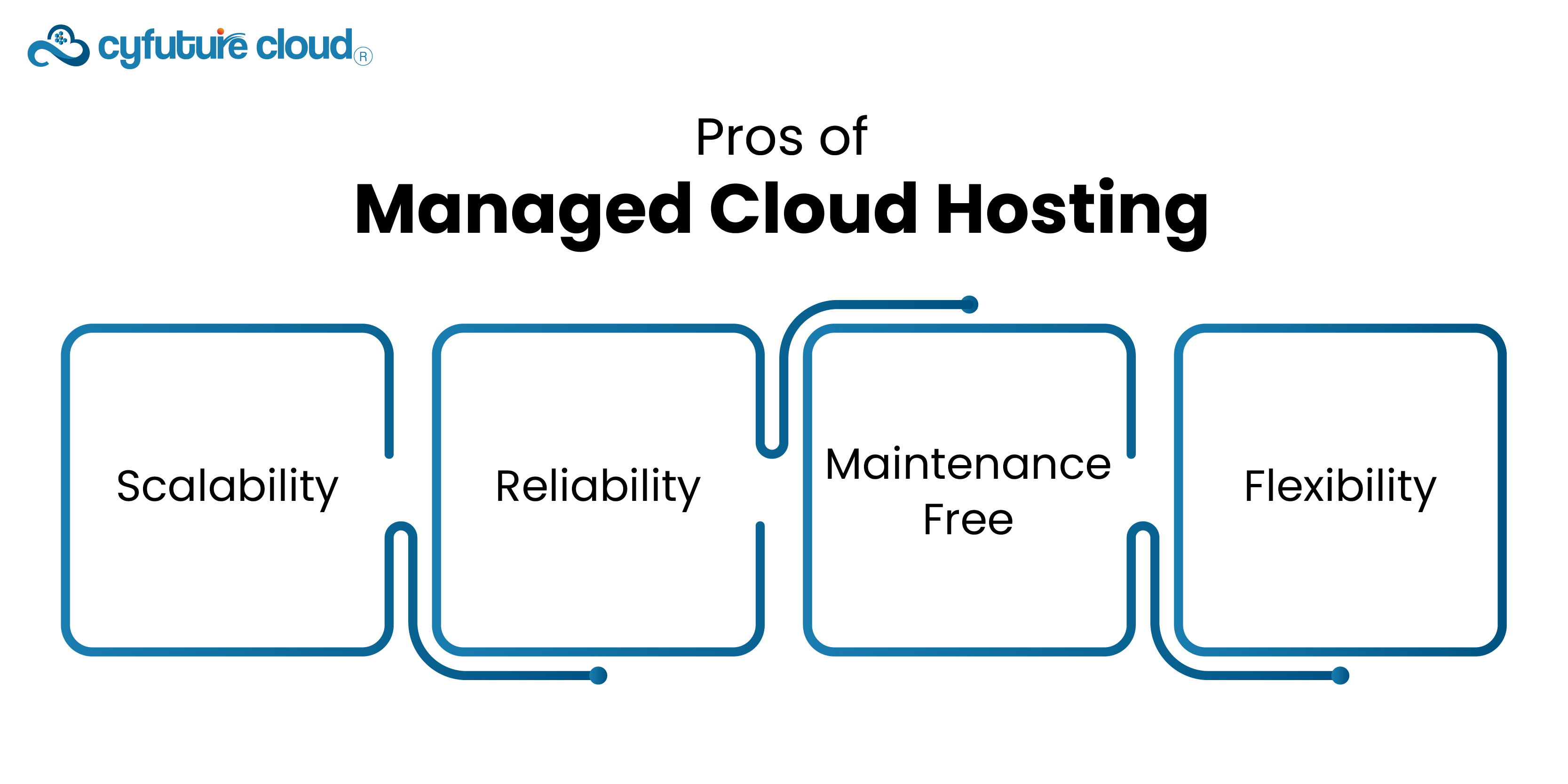
- Scalability: It is highly flexible and can easily be scaled up or down on aspects like CPU, RAM, or storage to meet demand. This makes it perfect for growing businesses or businesses that encounter busy periods and slow periods.
- Reliability: Cloud hosting is also normally more reliable and faster as resources are distributed on countless physical servers.
- Maintenance-Free: With providers, you get support on matters related to the servers, such as adding updates and security patches and performing backups, so that you can concentrate on your business.
- Flexibility: Purchase options: Products are definitely cheaper when you buy them under a pay-as-you-go system, especially when the amount of usage differs from time to time.
- Higher Initial Costs: Although scalable, the initial cost can be higher than shared hosting.
- Complexity: Understanding cloud services might require a learning curve, although the provider usually handles the management.
- Variable Costs: Costs can be unpredictable if resource usage varies greatly.
- Traditional Hosting: Limited and often requires migrating to a new server or plan to increase resources.
- Managed Cloud: Highly scalable, allowing for resources to be adjusted on demand with no need for migration.
- Traditional Hosting: Performance can be affected by other users on the same server (in shared hosting) or by the limitations of the physical server (in dedicated hosting).
- Managed Cloud: Generally offers better performance with resources allocated dynamically and redundancy built into the cloud infrastructure.
- Traditional Hosting: Fixed costs, with predictable billing.
- Managed Cloud: Pay-as-you-go model can lead to cost savings but also potential variability in billing based on usage.
- Traditional Hosting: Users often handle their own maintenance, updates, and security, especially with dedicated servers.
- Managed Cloud: Providers take care of all technical management, including updates, security patches, and backups.
- Traditional Hosting: Prone to downtime if the physical server fails.
- Managed Cloud: Higher reliability due to redundancy and distribution across multiple servers.
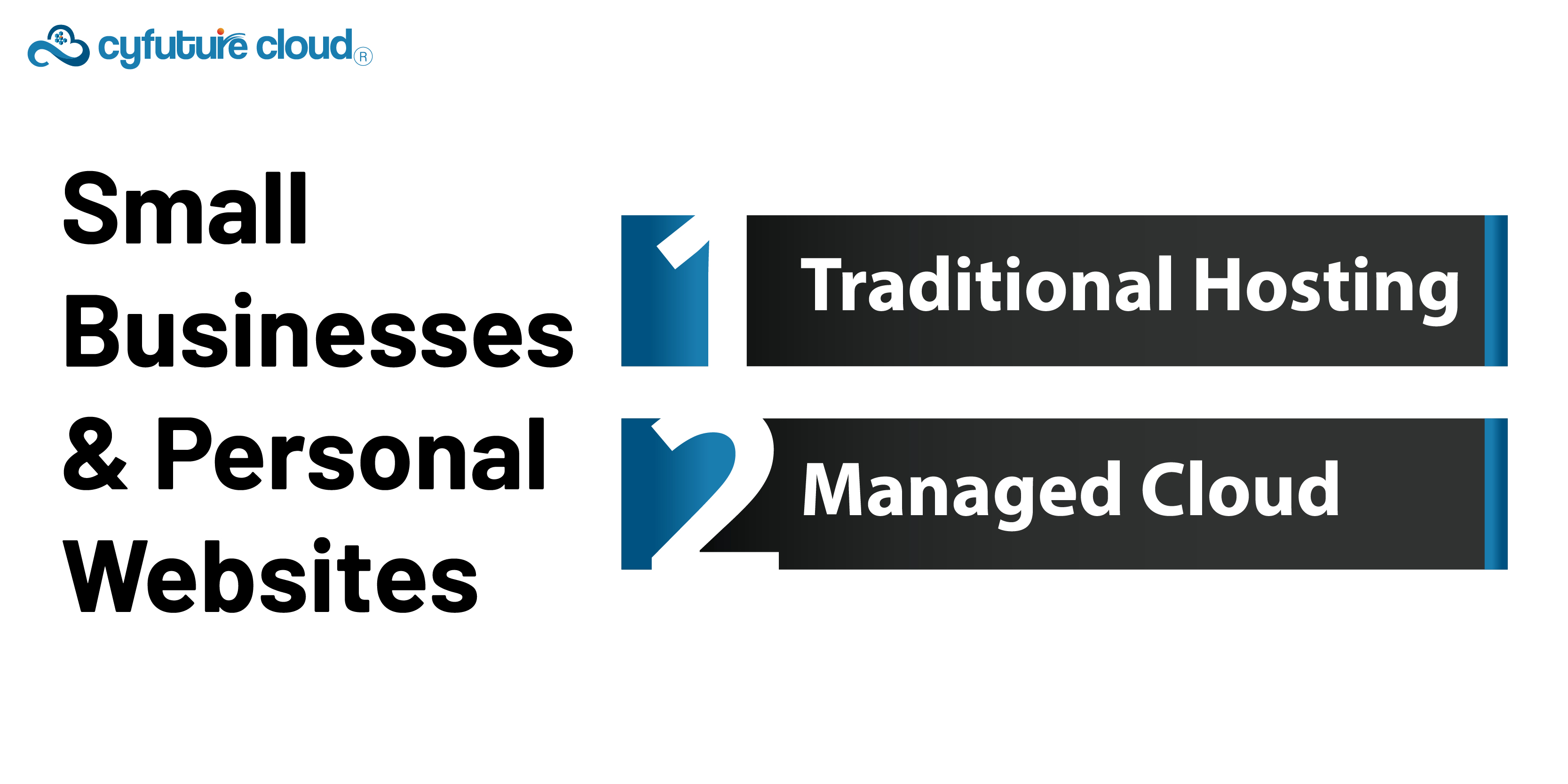
- Traditional Hosting: This is ideal if you have limited traffic and need a cost-effective solution. Shared hosting can be a good starting point.
- Managed Cloud: This might be overkill for very small sites, but it can be useful if you anticipate rapid growth.
- Traditional Hosting: Dedicated hosting can work if you need more control but don't expect frequent changes in resource needs.
- Managed Cloud: Offers flexibility and scalability, making it a better choice if your business is expanding or experiencing fluctuating traffic.
- Traditional Hosting: May fall short in terms of scalability and reliability.
- Managed Cloud Hosting: Excellent for handling large amounts of traffic and complex applications due to its scalability and reliability.
Deciding whether to use managed cloud or traditional service hosting requires careful consideration of certain aspects. We always use traditional hosting, which is cheap and easy to implement, and ideal for smaller or "frozen" websites. Managed cloud hosting, therefore, has features such as scalability where traffic patterns and business requirements fluctuate and relative dependability coupled with limited maintenance.
Consider/Assess your existing business requirements and projections for the company’s expansion. If you need flexibility and are willing to pay extra for a more elaborate service, managed cloud hosting will be more suitable for you. For simple, uncomplicated, and relatively cheap business requirements, traditional hosting could long remain a viable option.
Understanding these differences, however, helps you make an informed decision that will benefit your business in the long run and with the help of your website or application.

Let’s talk about the future, and make it happen!
By continuing to use and navigate this website, you are agreeing to the use of cookies.
Find out more


